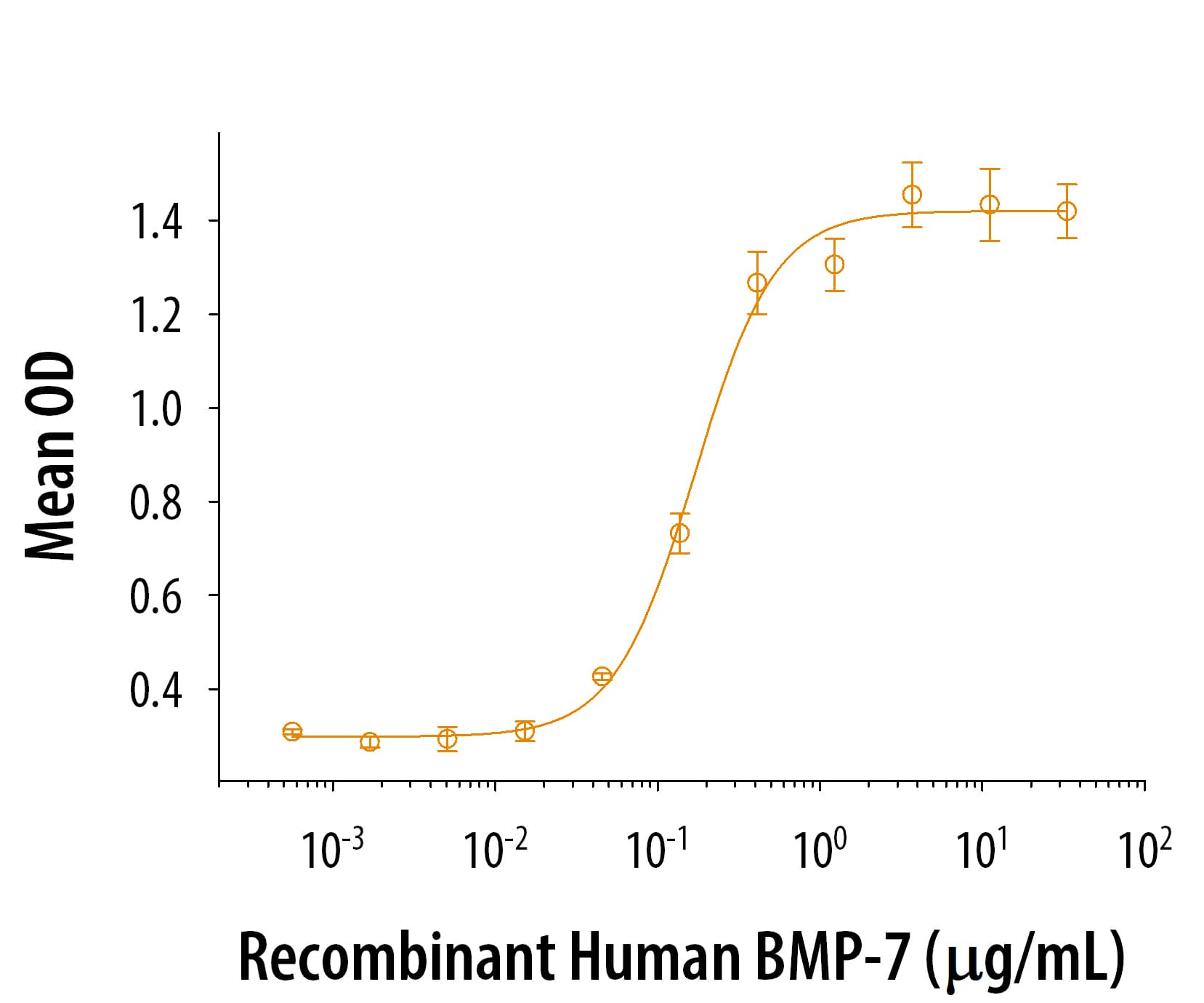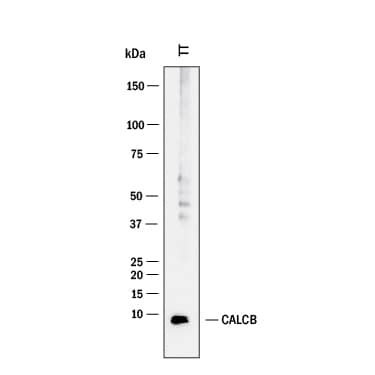Human MD2 Antibody Summary
Glu17-Asn160
Accession # NP_001123946
Customers also Viewed
Applications
Please Note: Optimal dilutions should be determined by each laboratory for each application. General Protocols are available in the Technical Information section on our website.
Preparation and Storage
- 12 months from date of receipt, -20 to -70 °C as supplied.
- 1 month, 2 to 8 °C under sterile conditions after reconstitution.
- 6 months, -20 to -70 °C under sterile conditions after reconstitution.
Background: MD2
MD-2, also known as lymphocyte antigen 96 and ESOP-1, is a secreted glycoprotein that shares conserved cysteine residues and significant sequence similarity (23%) with MD-1. The gene of human MD-2 encodes a 160 amino acid residue (aa) precursor protein with a 16 aa signal peptide and a 144 aa mature protein, which contains 2 N-glycosylation sites (1). Recombinant secreted MD-2 has been found to exist as disulfide-linked dimers and oligomers (2).
Both MD-1 and MD-2 are accessory molecules that associate with the extracellular leucine-rich repeats (LRR) of Toll-like receptor (TLR) family members, which are type I transmembrane receptors that regulate innate immune responses to microbial pathogens (3, 4). MD-1 binds to RP105 on B cells and macrophages to form the signaling receptor complex for lipopolysaccharide (LPS), a constituent of the outer membrane of Gram-negative bacteria. Similarly, MD-2 interacts with TLR-4 to form the heteromeric receptor that confers LPS responsiveness. MD-2 also associates with TLR-2, albeit with less avidity, to confer responsiveness to cell wall components from both Gram-positive and Gram-negative bacteria. MD-1 and MD-2 are also required for the correct targeting of the TLRs to the cell surface. Although MD-2 glycosylation is not crucial for its surface expression and interaction with TLR-4, it is required for LPS binding and signaling (5).
- Shimazu, R. et al. (1999) J. Exp. Med. 189:1777.
- Visintin, A. et al. (2001) Proc. Natl. Acad. Sci. USA 98:12156.
- Nagai, Y. et al. (2002) Nature Immunology 3:667.
- Akashi, S. et al. (2003) J. Exp. Med. 198:1035.
- Correia, J. and R. Ulevitch (2002) J. Biol. Chem. 277:1845.
Product Datasheets
Citation for Human MD2 Antibody
R&D Systems personnel manually curate a database that contains references using R&D Systems products. The data collected includes not only links to publications in PubMed, but also provides information about sample types, species, and experimental conditions.
1 Citation: Showing 1 - 1
-
PTX3 binds MD-2 and promotes TRIF-dependent immune protection in aspergillosis.
Authors: Bozza S, Campo S, Arseni B, Inforzato A, Ragnar L, Bottazzi B, Mantovani A, Moretti S, Oikonomous V, De Santis R, Carvalho A, Salvatori G, Romani L
J Immunol, 2014-07-21;193(5):2340-8.
Species: Human
Sample Types: Protein
Applications: Functional Assay
FAQs
No product specific FAQs exist for this product, however you may
View all Antibody FAQsIsotype Controls
Reconstitution Buffers
Secondary Antibodies
Reviews for Human MD2 Antibody
There are currently no reviews for this product. Be the first to review Human MD2 Antibody and earn rewards!
Have you used Human MD2 Antibody?
Submit a review and receive an Amazon gift card.
$25/€18/£15/$25CAN/¥75 Yuan/¥2500 Yen for a review with an image
$10/€7/£6/$10 CAD/¥70 Yuan/¥1110 Yen for a review without an image















